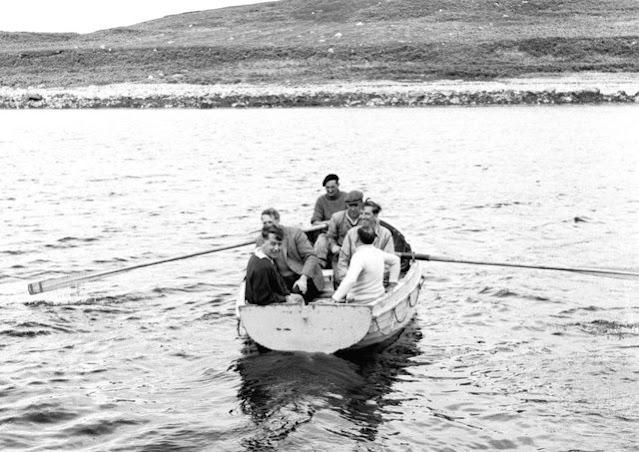On the northwest coast of Scotland, Gruinard is a small
oval-shaped island located in a bay of the same name and about 1km from the
mainland. In the 16th century, the Karans, a famous Scottish family, built a
sheep farm on Gruinard Island. Because of the lush vegetation here, the sheep
have thrived and the island seems to be a very promising destination for many.
Gruinard island
However, since the 20th century, the island has been
very dangerous for all mammals in general and humans in particular, and the
island has been abandoned since. Why has an island with such a beautiful
natural setting become a forbidden place to live? Let's go back to 1942.
In 1942, during World War II, a biological weapon test was carried out on the
Gruinard by British military scientists from the Porton Down Department of
Biology. The British government was investigating the possibility of a
biological weapon attack using anthrax bacteria. It was recognized that the
tests would cause long-term contamination of the nearby area with anthrax
spores, so a remote and uninhabited island was required. Gruinard was surveyed
by the British Government, and it was selected and requisitioned.
Gruinard island during WW2
By the time the scientists decided to test anthrax on
Gruinard Island, it was officially a dead land. It is known that nearly all of
the country's top biologists were sent to the island.
The selected strain of anthrax is the highly virulent one known as "Vollum
14578", named after R. Vollum, the professor of bacteriology at the
University of Oxford, who supplied it. 80 sheep were brought to the island and
bombs filled with anthrax spores were detonated near where selected groups of
sheep were tied. The sheep became infected with anthrax and began to die within
a few days of exposure.
Sheep were tied in the preparation of the experiment
Not only had terrible long-term consequences for the
island of Gruinard, after all the tests of the deadly germ weapon, the corpses
of sheep that died of anthrax were buried indiscriminately, carelessly right on
the island. After a huge storm, sheep corpses floated in the sea and washed
ashore, causing animals on land to become infected and died from anthrax.
Scientists checking the island regularly
It was not until 1981 that the public learned about the
terrible truth that Gruinard Island was hiding after 39 years of darkness,
after a group calling itself Dark Harvest sent soil samples contaminated with
anthrax bacteria to the press.
In 1986, under public pressure, the British government tried
to disinfect the island's land using 280 tons of formaldehyde diluted with
seawater and sprayed it over the entire surface of the island. However, after a
while they were disappointed to find that only a very small number of anthrax
bacteria had been terminated, the rest of the island was still heavily
polluted.
The island's decontamination in 1986
In 1990, another attempt to disinfect the island was
launched and it was later reported to be successful. The island is quickly
declared free of pollution and sold for a cheap price, but its dark past has
everyone worried and the island remains abandoned. To this day, it remains one
of the scariest places in the world, not because of its looks, but because of
its invisible danger.